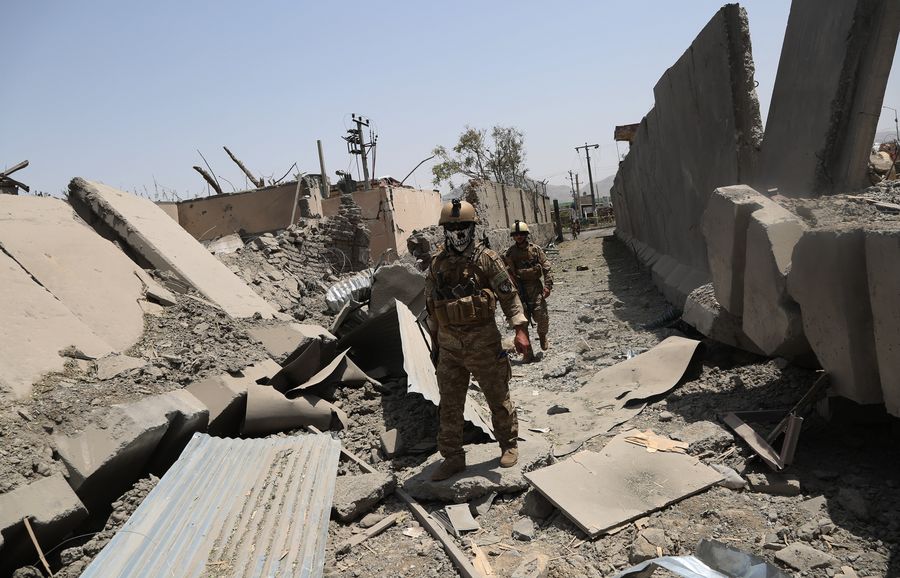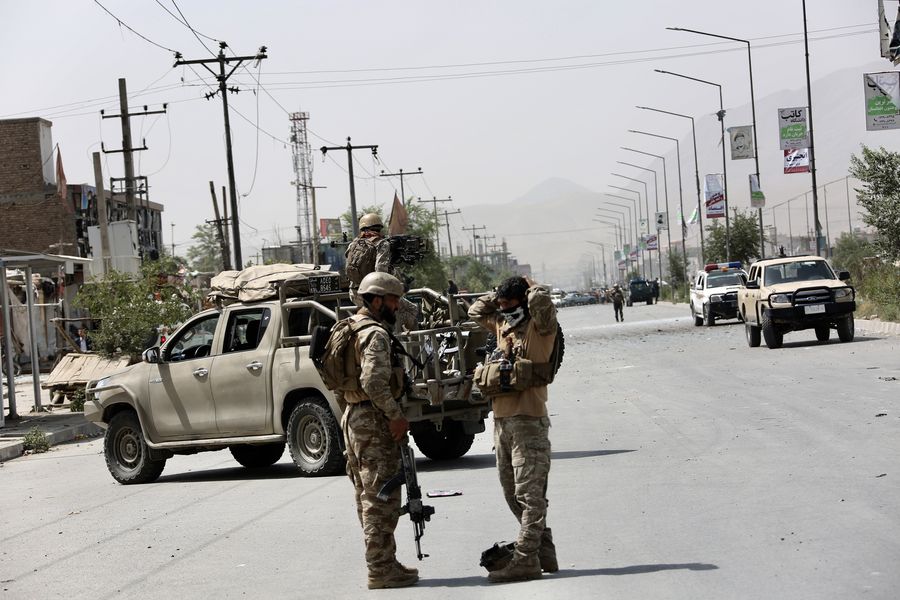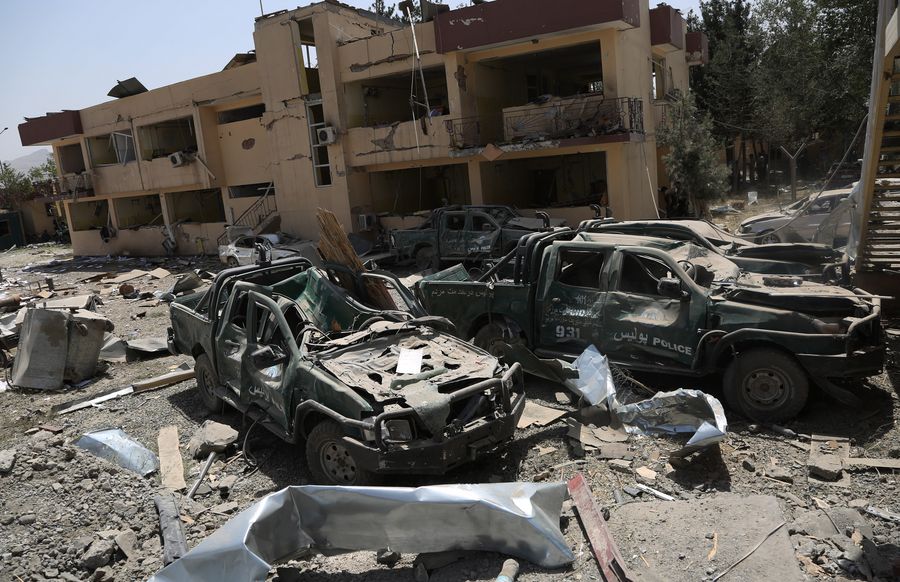
Afghan security force members inspect at the site of the explosion in Kabul, capital of Afghanistan, Aug. 7, 2019, when at least 95 people were wounded after a massive car bomb explosion. (Xinhua/Rahmatullah Alizadah)
The Afghan government has formed a 15-member delegation for talks with the Taliban but the armed outfit refused to sit on the negotiating table with the government as long as foreign forces are still present in Afghanistan. Nonetheless, the expert believed that no peace deal could lead to lasting peace in Afghanistan unless the Afghan government endorsed it.
by Abdul Haleem
KABUL, Aug. 7 (Xinhua) -- The U.S.-Taliban talks aimed at finding negotiated settlement to Afghanistan imbroglio and ending the United States' longest war in its history have entered its ninth months but no tangible progress was in sight, Afghan observers said.
Zalmay Khalilzad, an Afghan-born U.S. diplomat who was appointed Washington's special envoy for peace in Afghanistan last year, held his first meeting with the Taliban representatives in Qatar capital Doha on Oct. 12, 2018, and concluded his eighth round of talks with the armed group recently, according to media reports.
Although no details have leaked from the closed-door talks on Aug. 3-5, Khalilzad, according to media reports, said both sides "have made excellent progress" at the talks in Qatar.
However, Afghan experts described the lengthy talks as "boring dialogue" and cautiously welcomed.
"It is difficult to bridge the gap and reach an amicable peace agreement in near future," political analyst Payenda Rahyab told Xinhua on Wednesday.

Members of Afghan security force stand guard near the site of an explosion in Kabul, capital of Afghanistan, on Aug. 7, 2019. (Xinhua/Rahmatullah Alizadah)
The analyst maintained that the Taliban outfit has been pushing for restoration of its former regime which Afghans utterly dislike.
"Many Afghans are still living with the bitter memories of the so-called Islamic Emirate of the Taliban when its religious police publicly punished people for trimming beard, wearing shorts or coat with ties and banning education for girls," said Rahyab, who is the editor-in-chief of Basirat Magazine and the monthly Payam-e-Maiwand.
According to the analyst, Taliban believed that the group has already defeated the U.S. forces in Afghanistan and Washington would sooner or later withdraw its forces from the country. Therefore, the armed group did not want to talk to Afghan government and instead called for the unconditional pullout of foreign forces from their country.
The Afghan government has formed a 15-member delegation for talks with the Taliban but the armed outfit refused to sit on the negotiating table with the government as long as foreign forces are still present in Afghanistan.
Nonetheless, the expert believed that no peace deal could lead to lasting peace in Afghanistan unless the Afghan government endorsed it.

The explosion site in Kabul, capital of Afghanistan, on Aug. 7, 2019. At least 95 people were wounded after a massive car bomb explosion ripped through a busy neighborhood at the western side of Afghanistan's capital Kabul on Wednesday, an official said. (Xinhua/Rahmatullah Alizadah)
The Taliban outfit claimed the responsibility for the deadly suicide bombing in Kabul on Wednesday which has left 14 dead and 145 injured. The political analyst said the attack speaks of Taliban's double standards toward peace process in Afghanistan.
He cautiously predicted that "part of the Taliban group may join the peace process to reduce the war but not to end it" as the dissident Taliban commanders and the Islamic State fighters would continue the war.
The militant group has been demanding the unconditional withdrawal of the U.S.-led forces from Afghanistan, the analyst said, adding that the U.S. side is in favor of conditioned withdrawal, which makes it difficult for both sides to narrow the gap in the near future.
Echoing the notion, legislator Fawzia Ahmadi on Wednesday expressed doubt over Taliban's decision to support peace talks, saying "holding talks with the U.S. in Qatar and killing Afghans at home in suicide attacks" displays Taliban hypocrisy.
The eighth round of talks have been concluded but no sign of reaching peace agreement seems to be in sight, he added.



